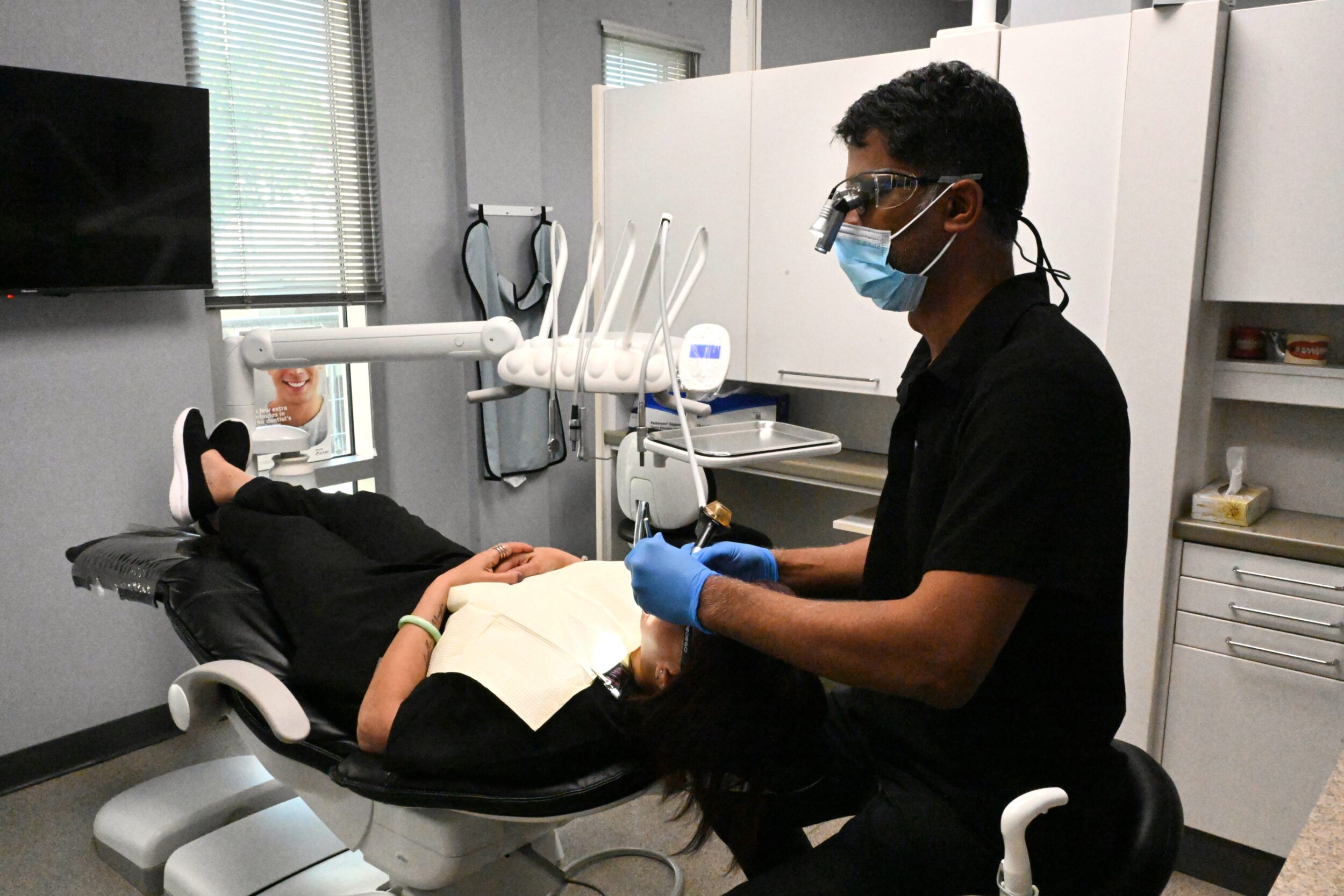Pacifiers and Thumb Sucking in Calgary, AB
The sucking of thumbs and sucking of pacifiers is normal for most infants. Sucking is a natural and instinctual baby habit, so infants find comfort, relaxation, and security in sucking a thumb or pacifier.
Research from the American Academy of Pediatric Dentistry (AAPD) shows that most children stop using pacifiers by the age of four. It is difficult to break a thumb sucking habit and it tends to persist for a longer period of time without intervention. A child who continues to suck their thumbs or pacifiers after the age of five (and particularly after their permanent teeth have emerged) is at a high risk of developing dental complications.

What are the dangers associated with thumb sucking and pacifier use in children?
The damage caused by thumb sucking and pacifier use can be quite subtle. Both can be difficult to detect with the naked eye, and both tend to take place over an extended period of time. The following are some risks associated with prolonged thumb sucking and pacifier use:
Misalignment of the jaw
Many pacifiers are completely unnatural to hold in the mouth, because they come in a wide range of shapes and sizes. During the development of the jaws, pacifiers and thumbs can cause the jaws to become misaligned.
Slanting teeth
Growing teeth may slant or protrude due to thumb and pacifier sucking, resulting in poor esthetic results. Additionally, thumb sucking and pacifier use during later childhood increase the need for extensive orthodontic treatment.
Decay of the teeth
Many parents attempt to soothe their infants by dipping their pacifiers in honey or other sugary substances. Bacteria in the mouth produce harmful acids when they feed on sugar. Childhood caries and pediatric tooth decay can be caused by acids that attack tooth enamel.
Roof narrowing
During childhood, the structures of the mouth are extremely pliable. Sucking on thumbs and pacifiers for prolonged periods of time causes the roof of the mouth to narrow (as if molding around the sucking device). There may be problems with the development of the teeth later on as a result of this.
Mouth sores
The effects of passive sucking are much less harmful than those of aggressive sucking. It is possible for sores or ulcers to develop after aggressive sucking (popping sounds when the child suckes).
Pacifiers can be purchased if you follow these steps:
- To reduce the risk of choking, buy a one-piece pacifier.
- Make sure the model is “orthodontically correct”.
- It should not be dipped in honey or any other sugary liquid.
- To prevent bacterial transmission, rinse with water rather than using your mouth.
What can I do to encourage my child to stop sucking his thumb or pacifier?
Most children naturally relinquish their pacifiers or thumbs as they grow. It is normal for children to develop new ways of self-soothing, relaxing, and entertaining themselves as they grow. A gentle intervention may be necessary when thumb sucking or the use of a pacifier persists beyond the age of five.
Listed below are some helpful suggestions for encouraging the child to stop sucking his thumb or using his pacifier:
- Consult the pediatric dentist about the possibility of stopping. When delivered by a health professional, the message is often more clearly understood.
- To prevent a child from sucking, buy an ADA-recommended specialized dental appliance.
- For not thumb sucking or using a pacifier, implement a reward system (not a punishment).
- During the night, wrap thumbs in mittens or soft cloths.
Your pediatric dentist can provide more guidance if the above suggestions do not seem to be working. Don’t forget: breaking a habit takes time, patience, and encouragement!